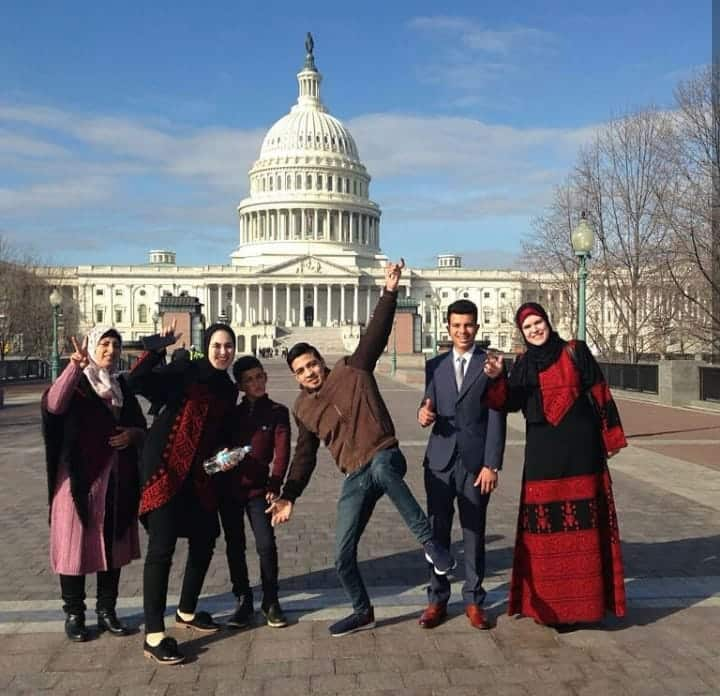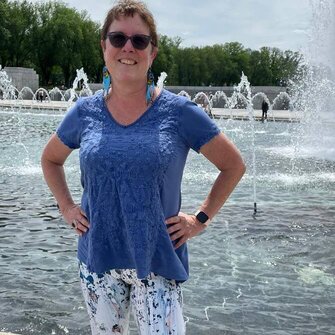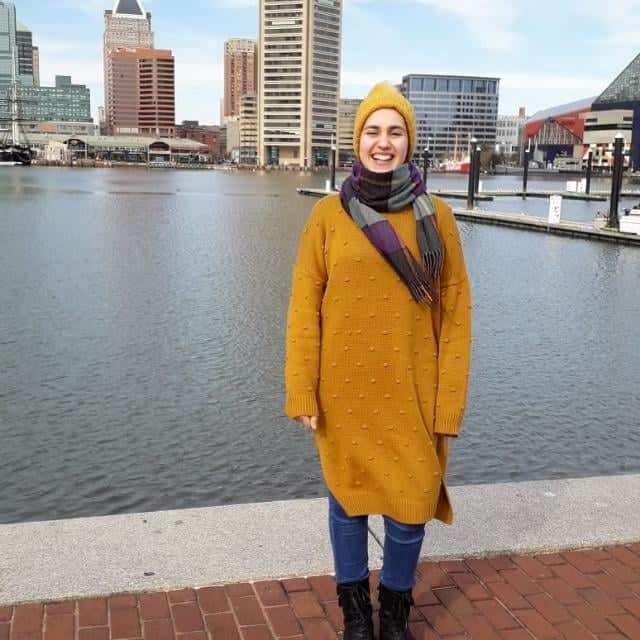
Dreams often remain just that—dreams—for many young Palestinians. But for a fortunate few, they come true. And one of them is Lama Ramzy Abed, 14.
Lama just returned from a trip to the United States, where the teenager met with members of the government, including the national congress, to tell them firsthand about the desire of Palestinians to be free.
Lama attends the UN’s al-Mamounia School in Gaza City. An ambitious girl, she responded immediately when she heard there was a competition sponsored by the American NGO Rebuilding Alliance to choose a young Gazan to educate American politicians on conditions in Gaza. All of the UN middle schools participated, and Lama was chosen out of hundreds of applicants. It took weeks of hard work and a lot of sheer luck, but finally she and her mother Amal left Gaza for America.
Lama’s dream came very close to staying a dream, however. Despite the fact that she and her mother had not yet received a “non-objection” letter from the Jordanian government, they were able to obtain Israeli permission to leave Gaza and then enter Jordan to fly to the United States from Amman. (Israel does not allow Palestinians to fly from Tel Aviv’s Ben Gurion Airport, so they must cross into Jordan and fly from there. Normally, this requires a permit from Jordan saying the government does not object to their entry, and applicants often must wait weeks to learn if they will receive it. Approval is frequently denied on first try, and if so, cannot be requested again for six months.) Rebuilding Alliance Executive Director Donna Baranski-Walker called on all of her carefully cultivated connections to get that to happen.
“Donna told us, ‘There are 10 people who were working to allow us to leave Gaza.’ We felt so special,” Lama recalls.
Sharing their stories
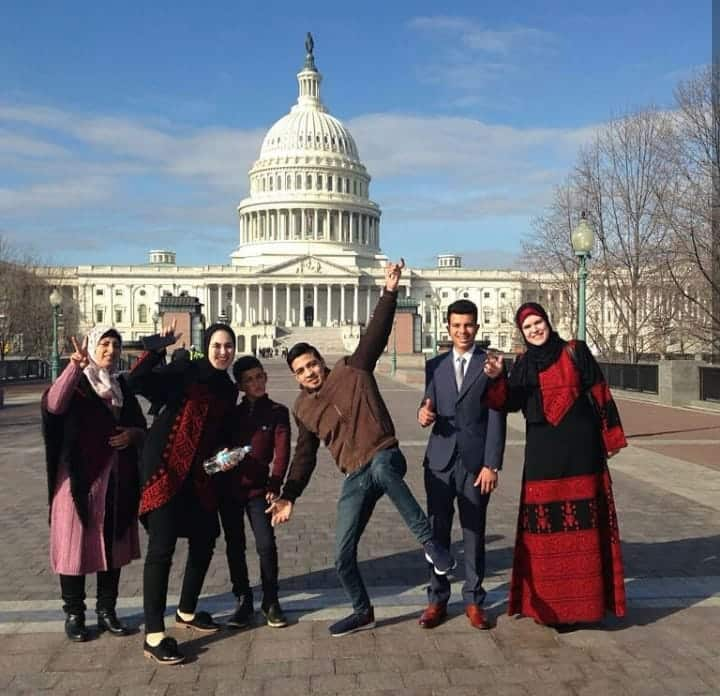
Their journey to America lasted 28 days, start to finish, and she says, “It was the most beautiful days of our life, finally seeing another country.” They visited eight states: Washington, Virginia, Maryland, New York, New Hampshire, New Jersey, Massachusetts and Kentucky. The highlight of their trip, however, was their opportunity to talk to members of the U.S. Congress, the body that runs the country along with the president.
"We met so many people, and in my head, I divided into two groups: one really listened to us; asking probing, sympathetic questions and offering to help however they could,” explains Lama. “The other people heard but didn’t really listen, putting us down with their negativity.”
For example, she says, some people wanted only to talk about Hamas, the political party that governs Gaza. Lama said she simply told them she (and most of the other 2 million people of Gaza) had nothing to do with Hamas. Another common question was if I ever saw Israeli soldiers face to face. (The answer: No, not personally, but they have invaded Gaza before and she hopes she never does.)
"People in Congress also kept asking me about my English, how I acquired such a good command of the language while I am still young,” laughs Lama. “My reply was that, ‘I learned the language by myself.’ They were shocked.”
I saw tears in Amal’s eyes; she hadn’t been able to afford to a laptop or to send Lama for tutoring at an English center. Instead, Lama used her mobile phone to teach herself.
“I did my best to ask for support on behalf of all Gaza children, but how effective I was depends on the hearts of the listeners,” Lama says. “That’s 70 percent of the mission.”
Ramzy, Lama’s father, is quick to support her: "Just delivering the message at your young age is an achievement, speaking human to human.”
Lama and the others in their group (including two boys from the West Bank and their mothers) participated in about four meetings a day, with senators’ offices, and at schools and mosques. Among the people they met were Jewish Americans, who to her surprise were supportive.
"The United States is the most crowded place in the world!” remarks Amal when asked her impressions. “All the streets are full of people from different backgrounds.
Amal is studying for her master’s degree in psychology, and says she tried to represent all Palestinian mothers and students while in America.
“The fear of never getting a job is what haunts graduates in Gaza,” she says. “Through our talks, we tried to paint a picture of our situation in Gaza, separate from the stereotypes (Westerners) often have. Our goal as to create a clear image of what being a Gazan is like."
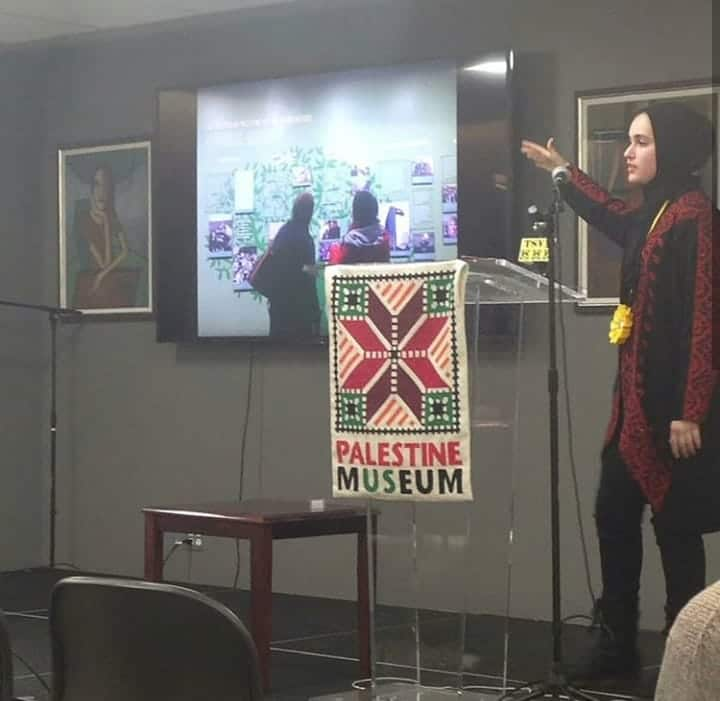
That’s why Lama and her mother say they like the Rebuilding Alliance hashtag, #Gaza_light_message, which plays off the solar lights the NGO donates to needy families.
“We want to shed light on Gaza for the world,” Lama explains. "Every Wednesday, I shared a #Gaza_light_message on my Facebook and Instagram accounts. A lot of my friends were influenced by me, and they started to do the same."
Palestinians uniting at last
An unexpected benefit of their trip to the United States was betting to know the two boys from the West Bank town of Susiya in the south Hebron hills of the West Bank—very close to the 1967 Green Line. It is one of dozens of Palestinian villages threatened by demolition and encroachment by illegal settlements. Joining Lama and Amal on the trip were Ayser An-Nawajja, 16, and Ahmed An-Nawajja, 12.
“Imagine this: The two cousins live just half an hour by car from us,” says Amal. “But because of the Israeli wall, we can't visit one another.”
This, along with the fact that the boys and their families must live in tents, was a shock and surprise to Americans. In contrast, many Westerners think Gazans live in tents, since that is their idea of “refugee camps.” However, Lama and her mother live in a building. Their struggle is to regain their ancestral homeland. And while Gazans are usually attacked from afar by Israeli F16 warplanes, Ayser and Ahmed come face to face with Israeli soldiers face to face almost every day.
Ahmed's mother, who accompanied him on the trip, says her main goal was to convince Congress to prevent the destruction of their village. She wants to see Ahmed become a doctor in the future.
"I explained our story to Congress because the media doesn't talk about details," Dalya, Ahmed's mother, says.
As for Ahmed, the journey itself was the highlight. "Riding in a plane was a dream," he says. “I also was really happy to meet Lama and her mother. I already miss Lama. I hope to be able to see her in Gaza someday, and she can come to visit us."
Some dreams come true; others need a miracle to happen.


